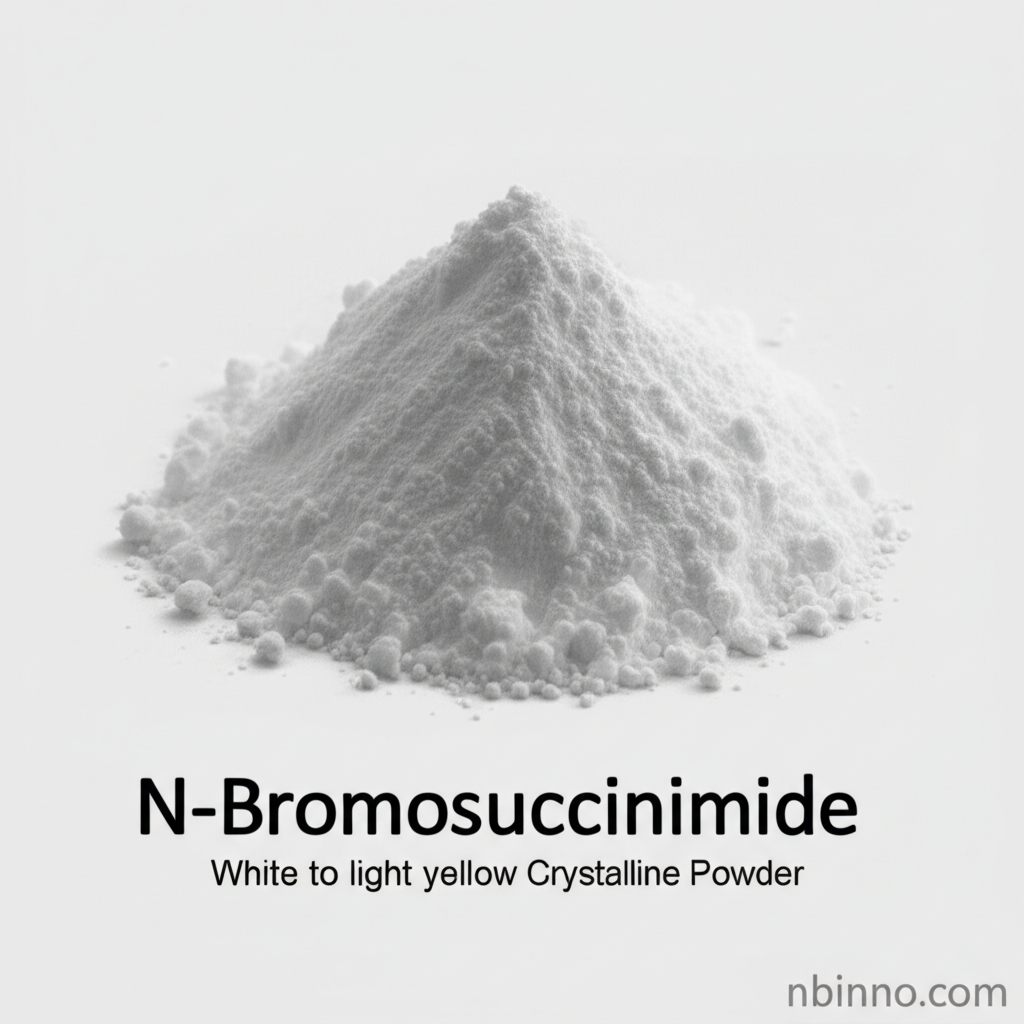N-Bromosuccinimide (CAS 128-08-5): A Versatile Reagent for Organic Synthesis and Chemical Applications
Discover the diverse applications and chemical utility of N-Bromosuccinimide, a key reagent for modern organic chemistry.
Get a Quote & SampleProduct Core Value

N-Bromosuccinimide
N-Bromosuccinimide, commonly known as NBS, is a fundamental reagent employed across a spectrum of organic synthesis reactions. Its exceptional ability to serve as a controlled source of bromine radicals makes it indispensable for transformations like allylic and benzylic bromination, which are critical steps in the synthesis of complex organic molecules.
- N-Bromosuccinimide provides a controlled source of bromine radicals, enabling precise reactions in organic synthesis.
- Facilitates essential transformations such as allylic and benzylic bromination, crucial for building complex molecular structures.
- Used in electrophilic addition and substitution reactions, broadening its utility in synthetic pathways.
- Also plays a role in the selective oxidation of alcohols and the oxidative decarboxylation of alpha-amino acids.
Advantages Offered by N-Bromosuccinimide
Controlled Bromination
Achieve targeted bromination reactions with NBS, minimizing unwanted side products and improving reaction efficiency. Understanding the nuances of bromination reactions is key to successful synthesis.
Synthetic Versatility
From radical substitutions to electrophilic additions, NBS demonstrates remarkable versatility, making it a go-to reagent for chemists. Exploring NBS chemical properties reveals its broad applicability.
Efficient Oxidant
NBS acts as an effective oxidizing agent, particularly useful in the selective oxidation of alcohols, offering a cleaner alternative in many synthetic schemes.
Key Applications
Allylic and Benzylic Bromination
This is a primary use for NBS, enabling the selective introduction of bromine at allylic and benzylic positions, essential for many synthetic routes. The efficiency of allylic bromination is a hallmark of NBS utility.
Carbonyl Derivative Bromination
NBS is effective in the alpha-bromination of carbonyl compounds, a critical step in modifying ketone and aldehyde structures for further synthesis.
Aromatic Compound Bromination
Electron-rich aromatic systems can be efficiently brominated using NBS, often with high regioselectivity, supporting the synthesis of functionalized aromatic compounds.
Oxidation and Decarboxylation
Beyond bromination, NBS is utilized for the selective oxidation of alcohols and the oxidative decarboxylation of amino acids, showcasing its multifaceted role as a chemical reagent.
